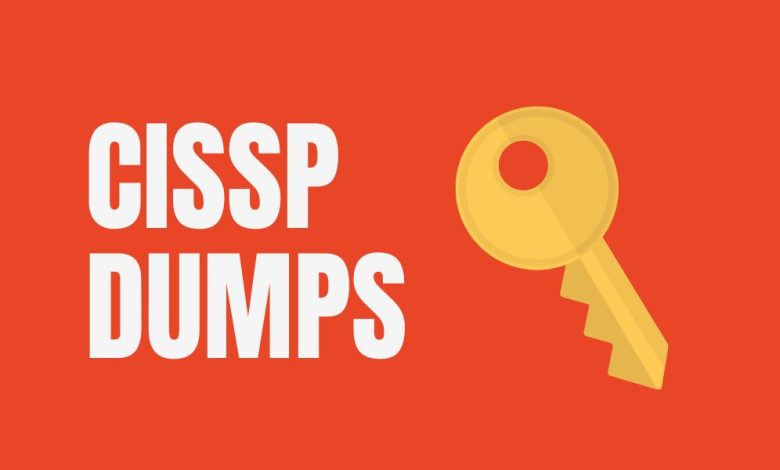Understanding CISSP Dumps: A Comprehensive Guide
Understanding CISSP Dumps: A Comprehensive Guide

CISSP (Certified Information Systems Security Professional) certification is a globally recognized credential in the field of cybersecurity, demonstrating expertise in designing, implementing, and managing cybersecurity programs. While obtaining this certification requires diligent study and preparation, some individuals may seek shortcuts, such as CISSP dumps. In this guide, we’ll explore how to access CISSP dumps, the risks involved, and alternative methods for exam preparation.
CISSP dumps refer to unauthorized materials that contain questions and answers from the Certified Information Systems Security Professional (CISSP) exam. These dumps are often circulated online and may claim to provide a shortcut to passing the CISSP exam. However, it’s crucial to note that using such dumps is considered unethical and goes against the principles of integrity in certification processes.
Legitimate CISSP exam preparation involves studying official study guides, participating in authorized training programs, and practicing with reputable practice exams. Relying on dumps not only violates the terms of service of certification programs but also undermines the purpose of certification by promoting rote memorization over true understanding of the subject matter.
CISSP is a highly respected certification in the field of information security, and candidates are encouraged to pursue it through ethical and reputable means. Engaging in thorough study, gaining practical experience, and understanding the core principles of information security will contribute to a more meaningful and valuable certification achievement.
What are CISSP Dumps?
CISSP dumps are unauthorized collections of questions and answers purportedly taken from previous CISSP exams. These dumps are typically shared or sold online through various platforms and promise to provide a shortcut to passing the CISSP exam.
How to Access CISSP Dumps?
Accessing CISSP dumps is relatively straightforward, but it’s important to note that using them carries significant risks. Here are common methods individuals may use to obtain CISSP dumps:
- Online Forums and Websites: Many online forums and websites dedicated to cybersecurity discussions may contain links to CISSP dumps or offer them directly for download.
- Social Media Groups: Some social media groups or pages focused on IT certifications may share links to CISSP dumps or provide access to downloadable files.
- Dark Web: In some cases, CISSP dumps may also be available for purchase on the dark web, although accessing and engaging with such content is highly discouraged due to its illegal nature.
Risks of Using CISSP Dumps
While CISSP dumps may seem like a convenient way to prepare for the exam, they come with significant risks and drawbacks:
- Violation of Ethics: Using CISSP dumps violates the (ISC)² Code of Ethics, which mandates ethical behavior and integrity in the cybersecurity profession.
- Legal Consequences: Engaging with unauthorized materials like CISSP dumps can lead to severe legal repercussions, including the revocation of certifications and potential legal action by certification bodies.
- Lack of Genuine Understanding: CISSP dumps promote rote memorization of answers without fostering a genuine understanding of cybersecurity principles and concepts, undermining the purpose of certification.
- Damage to Reputation: Being caught using CISSP dumps can damage one’s reputation and credibility within the cybersecurity community, potentially hindering career advancement opportunities.
Alternative Methods for CISSP Exam Preparation
Instead of relying on CISSP dumps, individuals seeking CISSP certification should consider legitimate alternatives for exam preparation:
- Official Study Guides: Utilize official study guides and materials provided by (ISC)², which offer comprehensive coverage of exam topics and ensure alignment with the latest exam objectives.
- Training Courses: Enroll in formal training courses offered by authorized training providers, which provide structured instruction, hands-on labs, and expert guidance to help candidates prepare for the exam.
- Practice Exams: Take advantage of practice exams and mock tests to assess your knowledge, identify areas of weakness, and simulate the exam environment before the actual test day.
- Self-Study and Research: Dedicate time to self-study and research cybersecurity topics independently, utilizing reputable sources and staying updated on industry trends and best practices.
- Peer Collaboration: Engage with peers, colleagues, and mentors in the cybersecurity community to exchange knowledge, share study tips, and seek guidance throughout the certification process.
Conclusion
While CISSP dumps may offer a tempting shortcut to certification, the risks and consequences associated with their use far outweigh any perceived benefits. By opting for legitimate study methods and adhering to ethical conduct, individuals can achieve CISSP certification with integrity and contribute to a more trustworthy cybersecurity profession.




